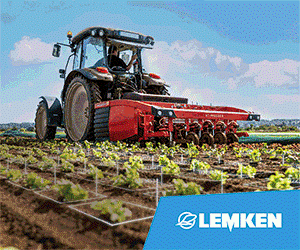The UK is still doing too little to help farmers and growers adapt to climate change or to address the threat it poses to food supply chains, MPs conducting an inquiry into the nation’s food security heard at the end of January.
Julia King, one of the UK’s most prominent engineers who also leads work on adaptation to climate change on behalf of Defra, told the House of Commons Environmental Audit Committee that by the middle of this century, summers like the one experienced in 2022 would likely be considered typical, rather than exceptional. She criticised the government’s national food strategy, published last year, for having nothing specific to say about actions needed to adapt to climate change, which she said was a ‘missed opportunity’ reflecting a lack of joined-up thinking between government departments.
Professor Dame King, who sits in the House of Lords as Baroness Brown, was giving evidence with her colleague, climate scientist Richard Millar. Between them they lead work on adaptation for the independent Climate Change Committee, which includes providing regular reports and advice to Defra on the risks posed by climate change and how to mitigate them.
She said her committee had identified eight priorities for urgent action, four of which were directly related either to nature or agriculture and another two on food supply chains.
She said soil health was a particularly critical area. “We need something like a 10% increase in agricultural productivity every year between now and 2050 because land has to be taken to increase woodland cover and for bio-energy crops,” she said.
“For that, we need soils in good quality and good condition, resilient to flooding, to drought, to high winds – all the things that can degrade soils.”
But she said there was no evidence such gains were being achieved and pointed to yield losses of 20% to 40% in onions, carrots, and potatoes in 2018 which, like 2022, was one of the UK’s hottest years.
“One reason is we lack a soil strategy – and there has been no comprehensive soil survey in the UK for many years so we don’t know the current condition of our soils or how fast they are degrading,” she said.
Dr Millar said water supply was the other key challenge, not just in the east and south-east but in areas where it is not currently regarded as an issue. “At the same time, too much water – particularly in winter – will also be part of the challenge,” he said. “Inundation of fields and crops is an important climate hazard that needs to be planned for, particularly in the west.”
Professor Dame King pointed to more periods of intense ‘tropical’ rainfall in summer. “That can take the surface off soils and contribute to their degradation,” she said. “If we want our soils to be resistant to that, we need to take measures to make sure we can maintain and improve productivity without having to rely on adding vastly more fertiliser.”
Measures to reduce demand on public water supplies, and stiffer reduction targets for industrial water users, were among her recommendations to help secure water supplies for food production.
“We would also like to see more provision for moving water from one part of the country to another, because clearly some areas, like East Anglia, are some of the most water-stressed parts of the country,” she said.
“Given that we are going to see more rain in the winter and less rain in the summer, we would like to see more focus on capturing that rain when it is there, with farmers being helped to put in place more on-farm water storage. We would like to see more support for farmers to implement more frugal irrigation management and technology.”
Asked if government should be doing more to help growers increase the supply of produce grown in the UK, Dr Millar said bringing too much production ‘back to the UK’ could bring its own risks.
It was a question addressed in more detail by farming minister Mark Spencer in a parallel inquiry into food security being held by MPs on the Environment, Food and Rural Affairs Committee.
“It is a risk to confuse domestic production with food security,” Mr Spencer said. “If we lift the drawbridge and do not maintain those markets from where we import food, and should we then suffer some sort of catastrophic event we would actually put at risk national food security. So we have a very balanced marketplace with established trade relationships and a very strong ability to produce quite a lot of food ourselves. That puts us in a very strong position.”
But he agreed there were some good ‘ethical reasons’ for more domestic production, for example because some parts of the world are finding it harder to grow crops and we may import what we need at the expense of developing nations.
Mr Spencer told the committee that while there was still some inflationary pressure in the system, he felt the peak of food chain inflation had passed.
But he added: “With global grain prices rising quite dramatically, farmers are suddenly willing to say, ‘I’m not doing this any more. I am not going to produce cauliflowers or cabbages at a loss. I can plant wheat instead, which is a lot less stressful and financially more rewarding’.
“We need to see a little more fairness in the system, so that the risk and reward is shared adequately and primary producers, farmers, the processing sector and the retail sector share that risk, responsibility and reward fairly.”
Read more news and features from the UK’s only publication dedicated to growers of field vegetables, outdoor salad and potatoes in our monthly publication The Vegetable Farmer.














